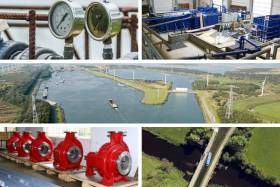Displaying items by tag: Carbon Emissions
Waterways Ireland Partners With European ‘Green WIN’ Project
Waterways Ireland is involved with the European project Green WIN, which aims to address excess energy use and high carbon emissions generated by pumping equipment and systems to keep waterways operational.
This project is funded under Priority 2 ‘Low Carbon’ of the European Regional Development Fund Interreg North-West Europe 2014-2020 and is led by Canal and River Trust (UK).
The other project partners are Ministerie van Infrastructuur en Waterstaat (NL), Université of Liège (BE), Voies Navigables de France (FR) and Vlaamse Landmaatschappij (BE).
The project aims to use trials of low-carbon water pumping technologies, systems or processes to show north-west European water management organisations how energy consumption and CO2 emissions for such operations can be significantly reduced.
From these trials, and by demonstrating a methodical approach that can be used after the project is complete, Green WIN aim to achieve 15% energy savings and CO2 reductions at 11 trial sites in Ireland, the UK and France by 2021, reducing energy use by 778,000 kWh and CO2 emissions by 195 tonnes.
Main outputs and pilots will be an infrastructure audit, technology trials, investment, procurement and business planning guidelines (a Greener Pumping Technologies Toolkit) and an established support network.
Green WIN will roll these out to other water management organisations by encouraging them to carry out new installations as their existing equipment reaches end of life.
The project will also aim to influence change in behaviours as well as legislation to reach a greater take up of greener technologies, lower energy usage, reduced emissions and more organisations involved in taking forward the technologies demonstrated in the project.
For more information on the project, visit the GreenWIN website.





























































